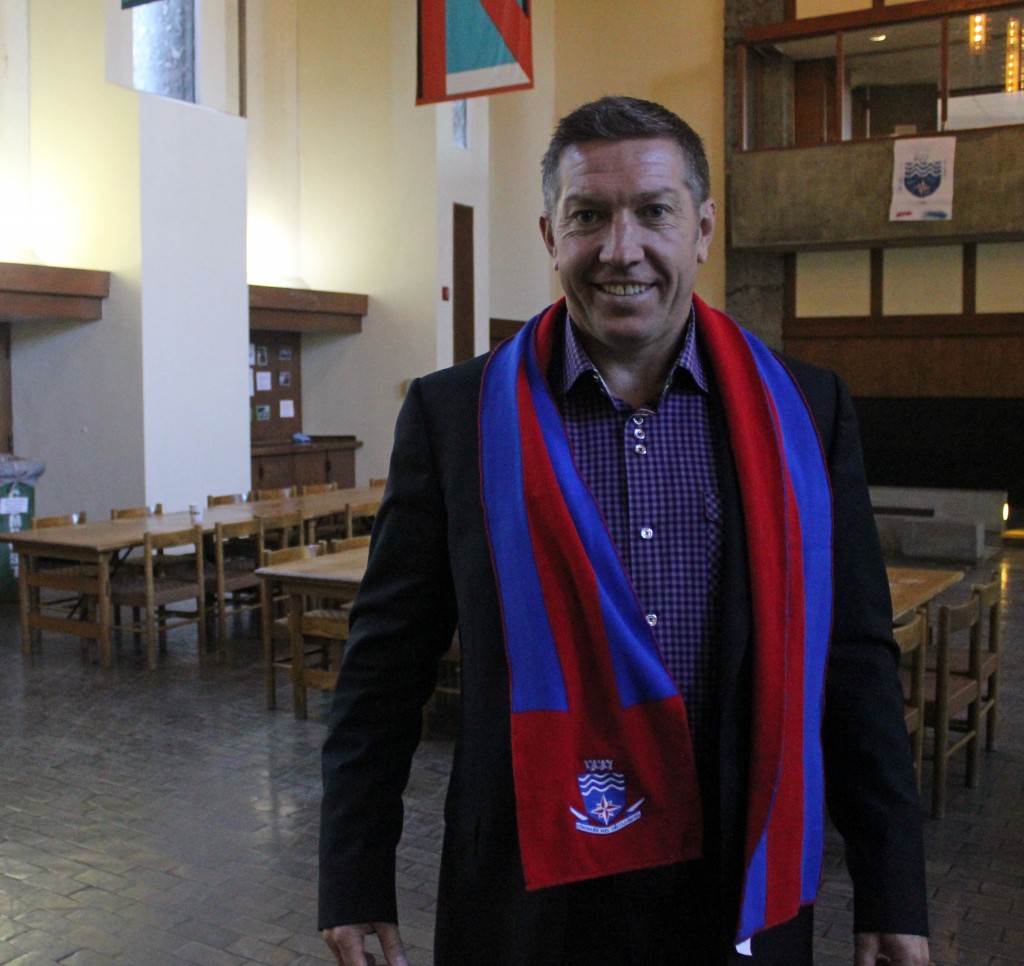By Tyler Renaud
Peterborough – Victims of child abuse need more support and education to avoid emotional and psychological problems down the road, Sheldon Kennedy, a former NHL star who now advocates for abuse victims, told students at Trent University on Wednesday. Kennedy is this year’s Champlain College Students’ Choice speaker. About 100 students attended Wednesday’s event.
In his talk, Kennedy, who himself was a victim of sexual abuse as youngster and now speaks out for victims’ rights, promoted the Calgary-based Sheldon Kennedy Child Advocacy Centre, launched in partnership with the Red Cross’ campaign against abuse.
“If we don’t deal with the kids of abuse now, we will deal with them in the workplace, in the courthouse or in the streets,” Kennedy said in an interview following the event.
The centre was created to provide education and support to the children of abuse providing education and healthy relationship counseling.
“We are trying to create confidence around [talking about] this issue,” Kennedy said. “Our best protection is education.”
Chris Gerics, a Trent student who attended the event, said Kennedy’s work is changing views about victims of child abuse.
“I think its very important because he is doing so much to erase the stigma and build acceptance for the abused,” said Gerics.
Kennedy and the Red Cross joined forces nearly 15 years ago, shortly after Kennedy went public with his own abuse. Since then, he and the organization have worked on a number of initiatives to raise awareness of the issue of child abuse. In 1998, Kennedy spent 5 months roller skating across Canada, raising $1.2 million for victims services.
“At first we would just get loonies and twoonies, but eventually we had people coming up to us with their stories [of abuse],” he said of the cross-country tour.
“I understood I was not a trained psychologist, I wanted to be an advocate and listen. People just wanted to tell their stories.”
Kennedy also teamed up with Hockey Canada to create the RespectEd program in minor hockey, which is aimed at educating the adults on how to deal with child abuse in minor hockey.
While he is very proud of the progress he and the organizations have made, Kennedy remains realistic, and says he often wonders why dealing with the issue of child abuse is not a broader phenomenon.
“Shouldn’t all adults who take care of children be educated on how to deal with abused or bullied children?” he said.
 Print This Post
Print This Post









